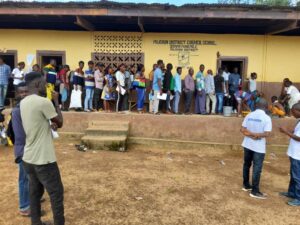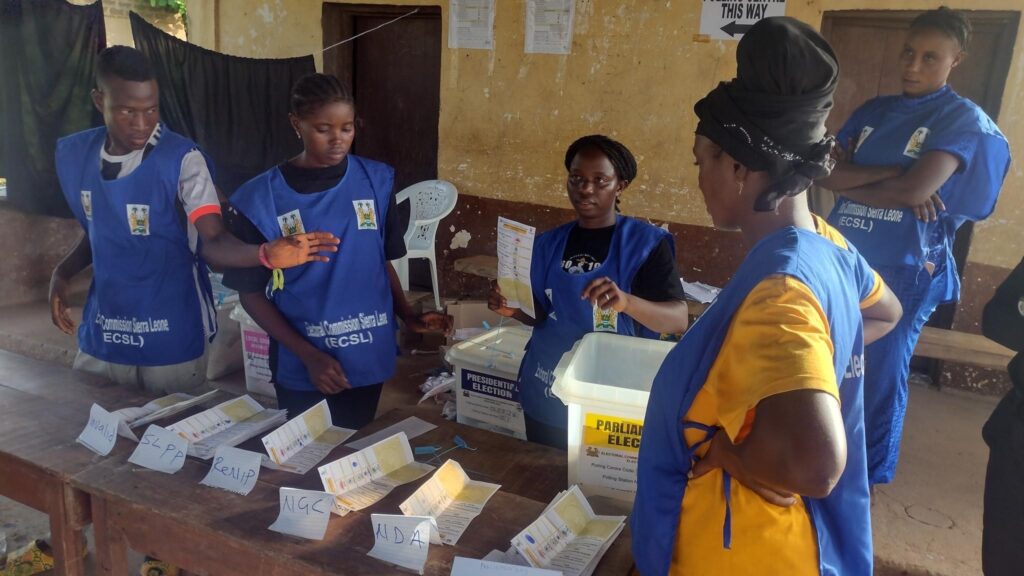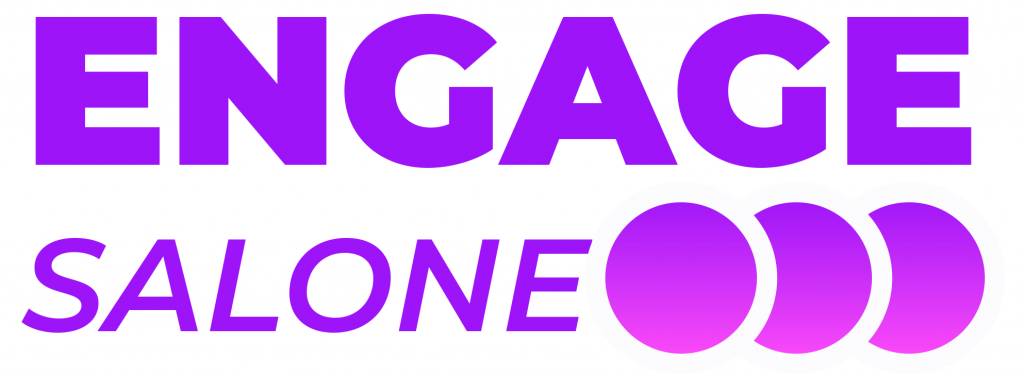We are happy to be back with our Saturday Editorials. During the elections, we decided to suspend the publication of the editorials because we wanted to avoid a situation where such hard-hitting analysis and opinions could be politicised. Now that the dust has settled (has it really?), we can start off with a reflection on the polls and the political stalemate that the country is locked in.
The impact left behind by the June 24 elections remains quite active as the opposition vows to stay away from participating in various levels of governance, including Parliament and Local Councils to which their candidates have been elected. The government seems determined to go on, though, and they are going on, but the questions that hang over the polls have put an ugly stain on their new mandate, risking a legitimacy crisis that takes away the glory of victory. Meanwhile, the chorus of “dialogue” and “peace” keeps swelling.
First things first: how did we even get here? The Electoral Commission for Sierra Leone (ECSL) must take responsibility for the disputed outcome and ensuing stalemate. The electoral process was fraught with distrust and suspicions from the very beginning, and sadly, the ECSL and other elections management bodies did very little to build confidence in the process. Unless you are insensitive, but when running such hot and divisive contests, the currency of trade is trust and confidence. Trust, trust, trust! Going into the June 24 elections, trust in the ECSL continued to dwindle. Trust in the other institutions that promote democracy has also kept shrinking over the last few years, according to a poll by the International Republican Institute (IRI).
The opposition parties, especially the All People’s Congress (APC), cried foul throughout the process—from the controversial census to the introduction of the Proportional Representation system of voting, the registration of voters and the release of the voter register and related data. The ECSL’s handling of these issues was poor and inadequate, missing an opportunity to foster much-needed confidence and trust in the electoral process.
On polling day, social media was awash with complaints about very late commencement of voting in many areas. The media and observers confirmed that. In some places, people were made to stand in long queues for many hours. Some polling stations did not even open until late in the night. This happened in the capital city, Freetown, where you would expect a much better level of organisation by the ECSL. The explanations around the delay were just as amateur as they were interestingly embarrassing. Ballot boxes showing up late without covers was ridiculous, making the whole thing look untidy and shambolic.

Elections are complex logistical operations that the ECSL seemed ill-prepared to handle. Similar issues came up during the registration of voters, and in one of our editorials, we called on the ECSL to learn from those mistakes. Forget the scandalous voter identification cards and the misplacement of voters in the final register. This would have been avoided if the ECSL had done their homework or were at least keen on organizing polls with minimum rigour and decency.
The last nail in the coffin was the tabulation of results widely criticized by election observers and the opposition. The process was deemed opaque, casting a huge cloud of doubt and suspicion over the outcome of the elections. If the ECSL had not stuck to their guns and shown commitment to healthy compromise, we wouldn’t be discussing this today.
There were several opportunities for the ECSL to demonstrate an openness to the process and address the many issues around the elections, especially at critical stages, such as the tabulation of votes. Up till now, calls for disaggregated data by polling stations have either fallen on deaf ears or will be addressed in ECSL’s own time—probably at a time when it would make no difference at all.
These are only a few of the many issues that explain how we got to this point. Prior to the elections, many made the point that the peace of the country was now in the hands of the ECSL because the outcome of the elections could either steer the nation forward and bolster its democratic credentials or plunge it into chaos. Fortunately, we have avoided the worst-case scenario that everyone feared—violence. We are not out of the woods yet, though, and the ECSL leadership should take responsibility for setting us back. The elections were another opportunity for Sierra Leone to prove to the world that we are making steady progress democratically. Our small nation would be a good example for many others, including powerful countries. We had an opportunity to set ourselves apart. The ECSL did not only squander the opportunity; they sent us many years back, turning the world’s attention to Sierra Leone again for the wrong reasons. This could have been avoided if they had done the simple things that would have promoted trust and confidence in the process.
The mediators and moral guarantors calling for peace and dialogue are rightly doing their job. At some point, someone needs to work towards resolving the stalemate. The conversation should not start from where we are right now, however. It should go back to the very issues that brought us here. We should return to where we stumbled to determine what caused the fall. Otherwise, we would only facilitate an elite bargain that leaves the voters entirely out of the equation. Those who failed to do their job must be held accountable, and those who brought us to where we are must be named. They should take responsibility. Sweeping things under the carpet in the name of peace, and dialogue sends the wrong message and is terrible for democracy. The ECSL caused this. They must be at the centre of the fixing.
Whatever you are up to this weekend, welcome back to the Saturday Editorial.
About The Author
- Engage Salonehttps://www.engagesalone.org/author/eng21_admin/
- Engage Salonehttps://www.engagesalone.org/author/eng21_admin/
- Engage Salonehttps://www.engagesalone.org/author/eng21_admin/
- Engage Salonehttps://www.engagesalone.org/author/eng21_admin/


